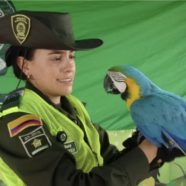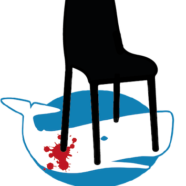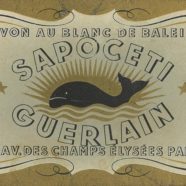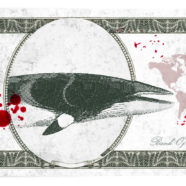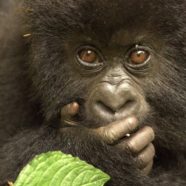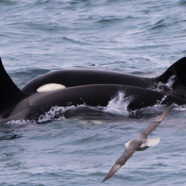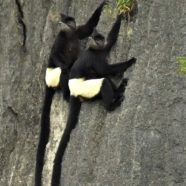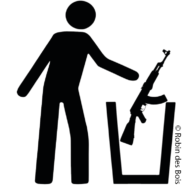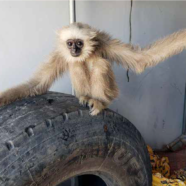“On the Trail” n°34, the defaunation bulletin
“On the Trail” n°34, the defaunation bulletin (pdf, 271 pages – 9.5 Mo)
1,854 events with references, analysed between September 1 and December 31, 2021.
506 iconographic documents.
Twelve maps and historical archives.
In 19 days, the 19th plenary meeting of CITES (Convention on International Trade in Endangered Species of Wild Fauna and Flora) will take place in Panama City with the participation of Robin des Bois, the Franz Weber Foundation and the Brigitte Bardot Foundation which support “On the Trail”.
Whales in the red n°3
International Whaling Commission
Portoroz – Press release n°3
After the mass strandings of pilot whales, gray whales and sperm whales since the beginning of the year on the beaches or in the creeks of the world ocean, now it is the turn of the International Whaling Commission to hit rock bottom. The accident was recorded in Portoroz, Slovenia, on the Adriatic coast, during and after the 68th plenary session. The international experts and NGOs who are at its bedside are trying to refloat it.
Whales in hot water n°2
International Whaling Commission
Portoroz – Press release n°2
The ecocide of whales, out of sight and out of compassion and for the greatest profit of civilian and military industrialists, had turned the global ocean red from 1900 to 1989 before it almost died out in the year 2000. But there remain embers and resumptions of fire. Stories about the sovereignty and food supremacy of humanity and the upholding of traditional cultures are heard and still unfortunately being tolerated and even encouraged.
Whales in hot water
International Whaling Commission
Press release n°1
The International Whaling Commission (IWC) has been in great financial difficulty since Japan’s withdrawal in 2019. The suspension of payments is for 2025. Three options are in the pipeline to redress the balance, and Option No. 2 could prevail.
“On the Trail” n°33, the gorilla settles his scores
“On the Trail” n°33,
the defaunation bulletin
(pdf, 287 pages – 10.6 Mo)
Orcas on the brink of collapse
The press release published on July 6 under the authority of the Seine-Maritime Prefect has at least 2 surprises in store:
On the Trail n°32 – the defaunation bulletin
On the Trail n°32 – January, February, March and April, 2021
pdf, 306 pages – 24 Mo
We leave no endangered wild animal by the wayside.
Our team of profilers has been scrutinising photos of the cruelties, the attacks on the diversity, beauty and musicality of the Earth. From goldfinches to tigers, animals go through torture and then receive the posthumous glory of being sold online or in markets, or they end up imprisoned for life.
We also identified, compiled and analysed newspaper articles, social media posts and videos, customs and police news releases on poaching at sea, in trees and swamps, and on smuggling at sea ports, air terminals, bus and railways stations.
So, we went around the world in 120 days – from January to April 2021 – and discovered, in the containers and luggage compartments of big and small human affairs, thousands of sharks, peacocks and lions, with only fins, feathers and bones remaining.
On the border between Viet Nam and China, a truck was even spotted at night carrying big bags of pangolin scales and human hair. In the first 4 months of 2021, at least 11 tons of pangolin scales were seized, which corresponds to at least 30,000 specimens.
On the Trail n°31, the defaunation bulletin
On the Trail n°31 – October-November-December 2020
1,294 events with references, along with analyses, 469 iconographic documents, maps and historical archives.
222 pages (pdf – 12.2 Mo)
Winter 2020, curfews and lockdowns. Some are poaching for survival or for a bit of money, others by idleness. Zebra meat dries on ropes in the savannah. In the United States, 17-year-old teenagers are poaching deer with the spotlights of their parents’ GMC truck. There are traps everywhere and of all kinds from north to south, east to west, on land and at sea. No wildlife can escape them, from the biggest ones like bears to the smallest ones like Berthe’s mouse lemur. Birds by hundreds of thousands are captured to brighten up the stay-at-home holiday season. The Ganges river dolphins are lynched, people need to unwind.
On the Trail n°30 – the defaunation bulletin
On the Trail n°30 – July, August and September 2020
1040 events with references, along with analyses, iconographic documents, maps and historical archives
201 pages (pdf), 12 Mo
“On the Trail” is going on with its analysis of the effects of the Covid-19 crisis on poaching and animal smuggling through one thousand or so genuine examples from around the world. In the third quarter of 2020, rumours are taking hold about pangolin meat, feline meat and lion organs being considered miracle cures for Covid-19. The pandemic causes a surge in wildlife plundering. As soon as the pandemic emerged, it caused an upsurge in trapping. In India and Africa, people from the cities returned to the villages, there were many mouths to feed, and poaching increased. In rich countries, recreational hunting is in full swing; people kill deer, bears, moose and birds of prey to kill time. Wildlife trafficking is on the rise on social networks. In Myanmar, transit and force-feeding centres for pangolins waiting to be smuggled to Thailand are full because of the border closures and transport paralysis. Destocking of raw ivory and other wildlife products accumulated during the full disruption of supply chains are beginning to appear. The global market for wild birds is expanding. The Covid-19 crisis has opened up new opportunities with a confined humanity in need of nature.
On the Trail n°29 – The defaunation bulletin
On the Trail n°29 – April, May and June 2020
990 events with references, along with analyses,
iconographic documents, maps and historical archives
182 pages (pdf), 11.6 Mo





